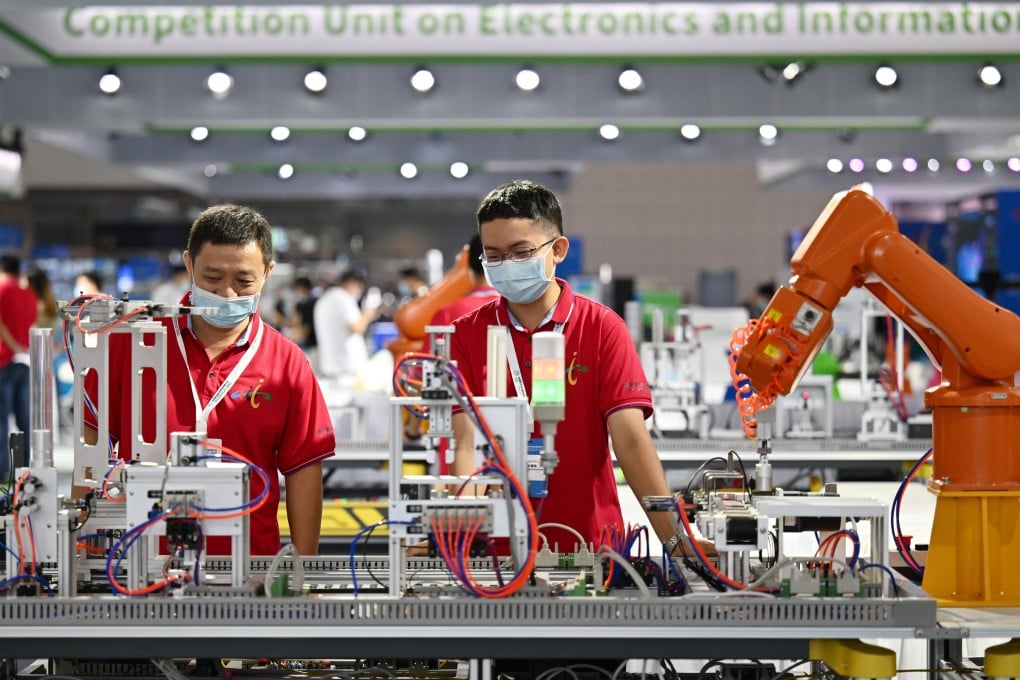US-China tech rivalry puts home-grown innovation ‘at the heart’ of modernisation drive, Xi Jinping vows
- ‘Talent is the foremost resource’, and bolstering China’s pool of professionals will be more heavily prioritised in the coming years, according to Xi Jinping’s report to party cadres
- Technological self-sufficiency and ‘winning the talent war’ are deemed critical steps toward gaining an upper hand as competition with US shows no sign of abating

President Xi Jinping is doubling down on the importance of technological self-sufficiency, innovation and education in China’s development plan, as the country has become embroiled in increasingly heated competition with the United States.
“[China] must insist that technology is the foremost productive force, that talent is the foremost resource, and that innovation is the foremost impetus,” says the report by Xi, who is also general secretary of the Communist Party. “Innovation will remain at the heart of China’s modernisation drive.”
“[China must] perfect its technological innovation system, insist on innovation’s core position in the overall socialist modernisation … speed up the implementation of the strategy where innovation drives development … [and] gather momentum to make breakthroughs in leading original technologies,” the report adds.